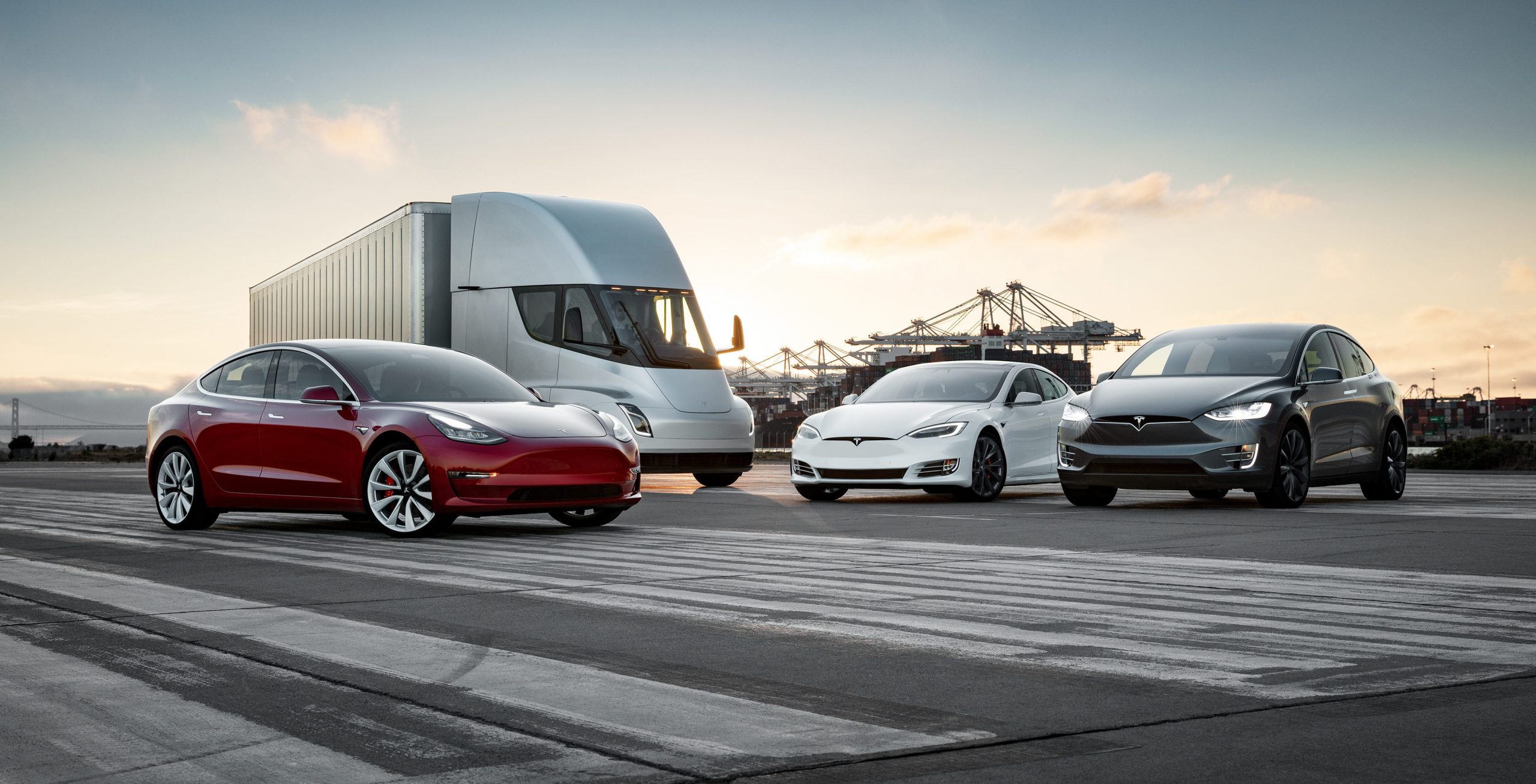
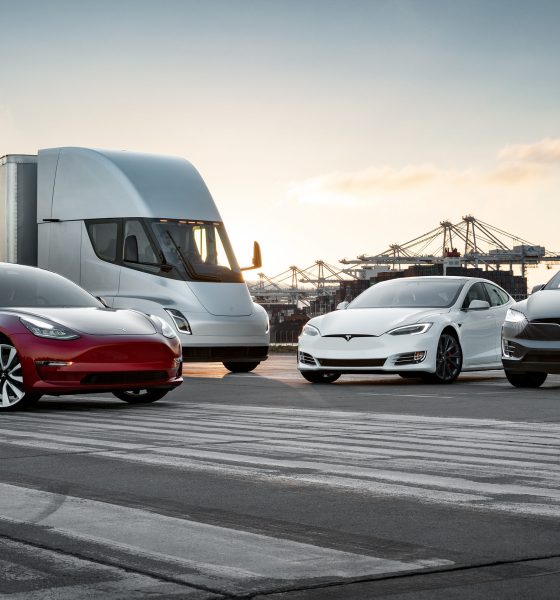
News
Tesla earns nod of respect from legacy auto for pushing sustainable transportation
It took multiple bet-the-company situations, trips to “production hell,” and a massive push towards profitability in the third quarter, but Tesla has pretty much become the undeniable leader in premium electric mobility. With the Model 3 proving to be a success in the United States and getting a lot of interest in markets such as Europe and Asia, Tesla is practically becoming an inconvenient truth to traditional automakers — particularly those that have held off on the development of zero-emissions vehicles.
Earlier this year, Paul Sankey of Mizuho Securities noted during a segment on CNBC that the “Tesla Effect” is starting to spill over to industries beyond the car market. Sankey described the Tesla Effect as a trend that pushes the idea that the 21st century will be driven by clean electricity in the same way that the 20th century was driven by oil. Among legacy carmakers, this particular shift is starting to become notable.
Recently, executives from a number of established automakers acknowledged Tesla’s contribution to the evolution of sustainable transportation. In a recent interview with the Los Angeles Times, for example, Porsche North America Chief Executive Klaus Zellmer validated Tesla’s breakthroughs in the electric car market, praising the company for its “astonishing” work.
“If you look at what Tesla has done, if you look at their volume and look at their price level, it’s truly astonishing. If you can do that with one brand and a sales network that is not comprised of dealers and a real sales organization, it’s even more astonishing,” he said.
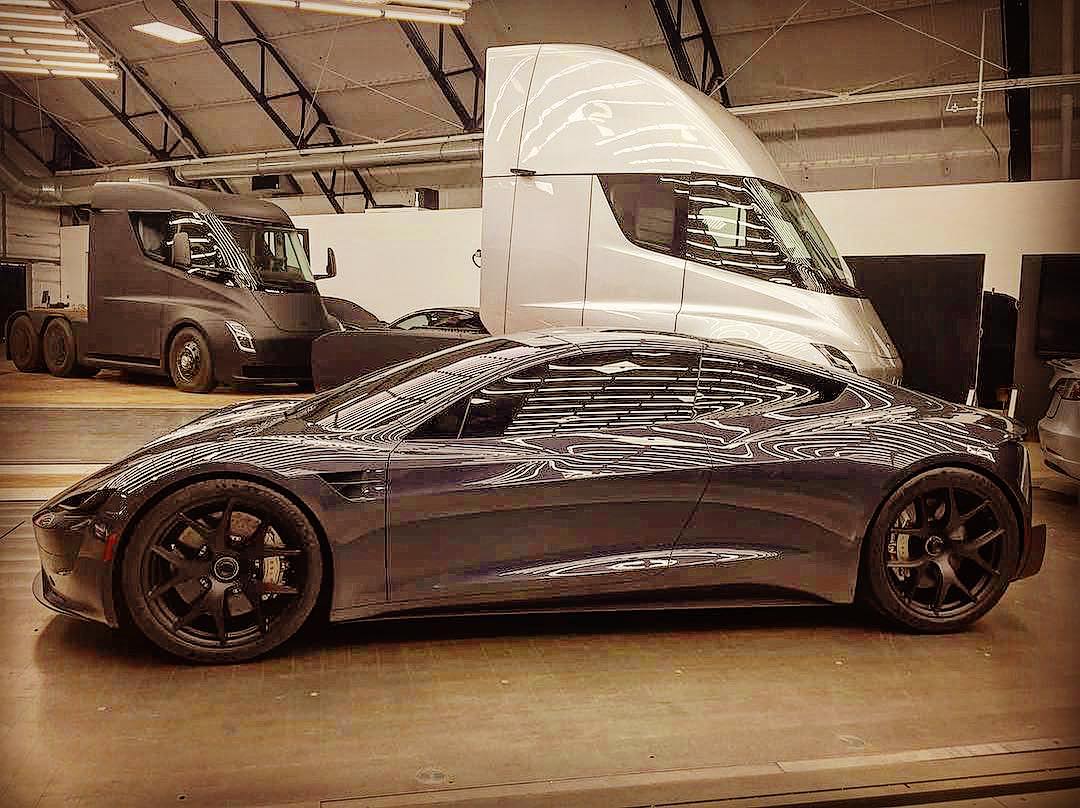
Hope King of Cheddar inquired about Tesla while speaking with executives from several legacy carmakers during the 2018 LA Auto Show as well. Just like Porsche’s Zellner, the execs from the establishes carmakers also admitted that Tesla’s progress over the years had affected their business and the industry as a whole.
Audi of America senior product manager Anthony Foulk noted that Tesla has “pushed the entire auto industry forward and broken ground for some different topics in the industry.” Foulk pointed out that Tesla is among the reasons why Audi opted to release the e-tron SUV, an electric vehicle that is “meant to be accessible to a wide portion” of the market. Volkswagen of America Sales and Marketing executive Derrick Hatami echoed Foulk’s observations, stating that Tesla has provided an “interesting window into what the possibilities could be for electric vehicles and future retail models for the auto industry.” Hatami further remarked that the electric car maker had given other automakers “something to look at and aim for” with regards to the development of EVs.
Masahiro Moro, the President and CEO of Mazda’s North American operations, lauded Tesla for its tendency to boldly break through conventions and adopt strategies that are experimental at best. Moro noted that with Tesla in the market, “we (legacy carmakers) have to look at ourselves to see if there are unmet needs of consumers so we can innovate our process.” Bugatti President Stephan Winkelmann also validated Tesla’s contributions to the car market, stating that the electric car maker has “pushed the car industry in one direction,” while allowing other companies to admit that “social acceptance is key for the future of every car manufacturer.”
Gorden Wagener, Chief Designer of Mercedes-Benz, was optimistic about Tesla’s breakthroughs, particularly when it comes to the features and capabilities of vehicles on the road. Wagener noted that Tesla’s approach to its electric cars is encouraging other companies to “change this industry in the next 10 years more than in the 100 years before” — something that the designer admitted is a “very exciting to do.”
Tesla’s mission has been clear since day one — it aims to accelerate the world’s transition to renewable energy. Elon Musk has reiterated this multiple times, and the company itself has admitted that Tesla cannot push the transition to sustainability on its own. In the auto sector, other companies — particularly legacy carmakers that already have large manufacturing infrastructures — have to commit to developing zero-emissions vehicles as well.
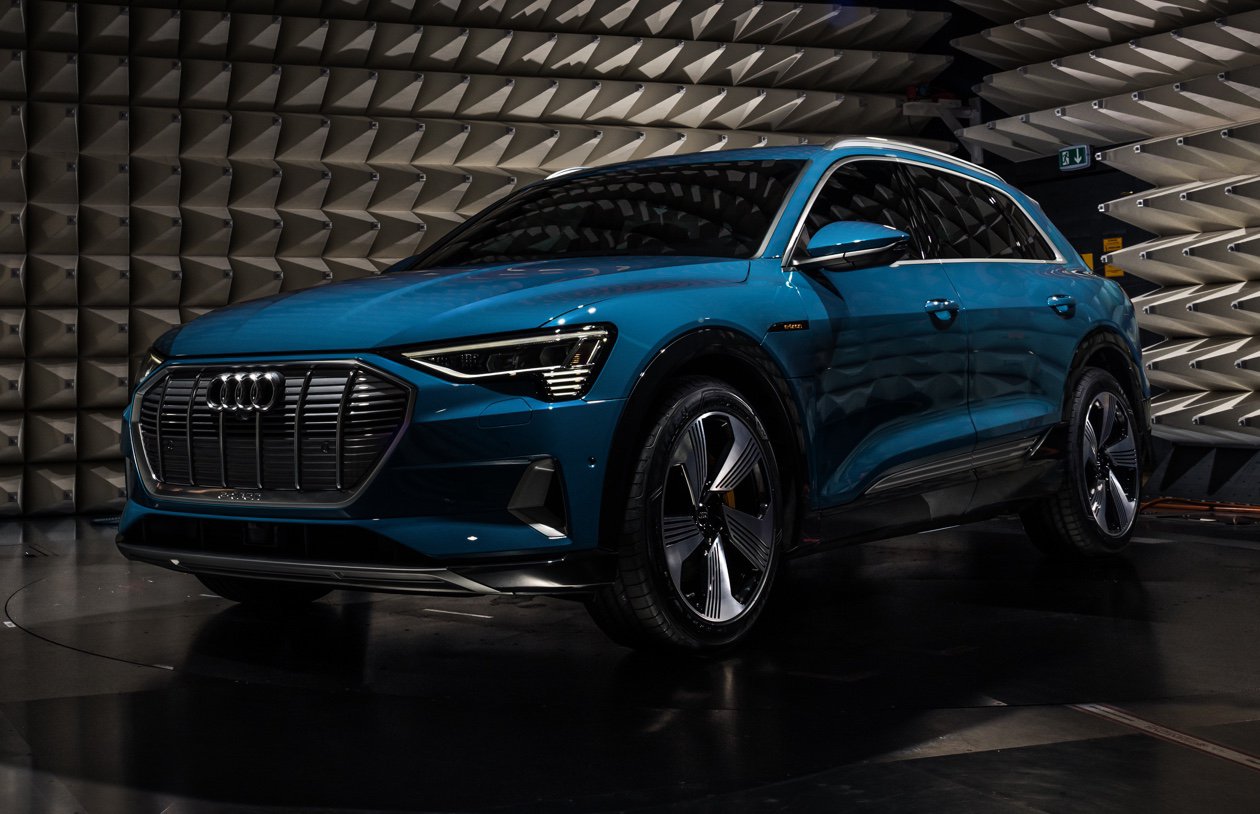
Several companies have already taken valuable steps towards this goal. Porsche announced earlier this year that it is abandoning its entire diesel lineup ahead of the release of the Taycan, its first all-electric sedan. Reports have also emerged that Jaguar is looking to transition itself into a company that exclusively produces all-electric cars.
Perhaps more importantly, though, is that a number of legacy carmakers are starting to realize that there is a very real demand for electric vehicles. Norwegian news agency Dagens Næringsliv, for one, noted that Audi’s sales dropped almost 80% in Norway last month. Inasmuch as the steep decline is rather alarming, Audi’s Head of Communications Morten Moum stated that a big reason behind the decline is that car buyers are waiting for the company’s electrified vehicles, such as the hybrid Q7 e-tron SUV.
In October, estimates indicate that Jaguar sold around 1,200 units of the I-PACE, accounting for 8.7% of the company’s overall vehicle sales. Hyundai also reported that sales of the Kona Electric, its budget electric crossover, rose to 2,473 units in October, 1,000 more than the company sold in September. Estimates also point to 46% of Kona buyers opting in for the vehicle’s electric variant over its more affordable gas-powered counterpart.
Tesla’s growth over the past 15 years has been notable. Amidst the changing tides of the auto industry, the electric car maker is poised to grow even more as it establishes its place as a first mover and leader in the EV movement. It took daring gambits and years of pain and stress, but it appears that finally, Tesla has reached the point where the auto industry’s veterans are not only recognizing, but also respecting, the company’s efforts in pushing towards sustainable transportation.

Elon Musk
Elon Musk highlights one of Tesla FSD Supervised’s most underrated features
In his post on X, Musk wrote, “Tesla self-driving now recognizes hand signals.”

Tesla’s Full Self-Driving (Supervised) is able to recognize and respond to hand signals, as highlighted recently by CEO Elon Musk.
In his post on X, Musk wrote, “Tesla self-driving now recognizes hand signals.”
Musk shared the update in a quote reply to a video posted by Tesla Europe, which showed a vehicle operating with Full Self-Driving (Supervised) navigating a tight lane in the Netherlands while responding to hand gestures from a person directing traffic.
Hand signal recognition is an important capability for advanced driver-assistance and autonomous systems. In real-world driving, pedestrians, construction workers, parking attendants, and other drivers frequently use hand gestures to direct traffic, yield right of way, or indicate when it is safe to proceed. For a self-driving system operating in mixed environments, interpreting these non-verbal cues is critical.
Musk’s post comes as Tesla owners have surpassed 8 billion cumulative miles driven with FSD (Supervised) engaged. “Tesla owners have now driven >8 billion miles on FSD Supervised,” the company wrote in a post on X.
Annual FSD (Supervised) miles have increased sharply over the past five years. Roughly 6 million miles were logged in 2021, followed by 80 million in 2022, 670 million in 2023, 2.25 billion in 2024, and 4.25 billion in 2025.
In the first 50 days of 2026 alone, Tesla owners logged another 1 billion miles. At the current pace, the fleet is trending toward approximately 10 billion FSD (Supervised) miles this year.
Tesla’s latest North America safety data, covering all road types over a 12-month period, also indicates that vehicles operating with FSD (Supervised) were recorded one major collision every 5,300,676 miles. By comparison, the U.S. average during the same period was one major collision every 660,164 miles.
News
Tesla hiring for Commercial Charging role hints at Semi push in Europe
The job opening was highlighted by David Forer, Senior Project Developer for Charging at Tesla, on LinkedIn.
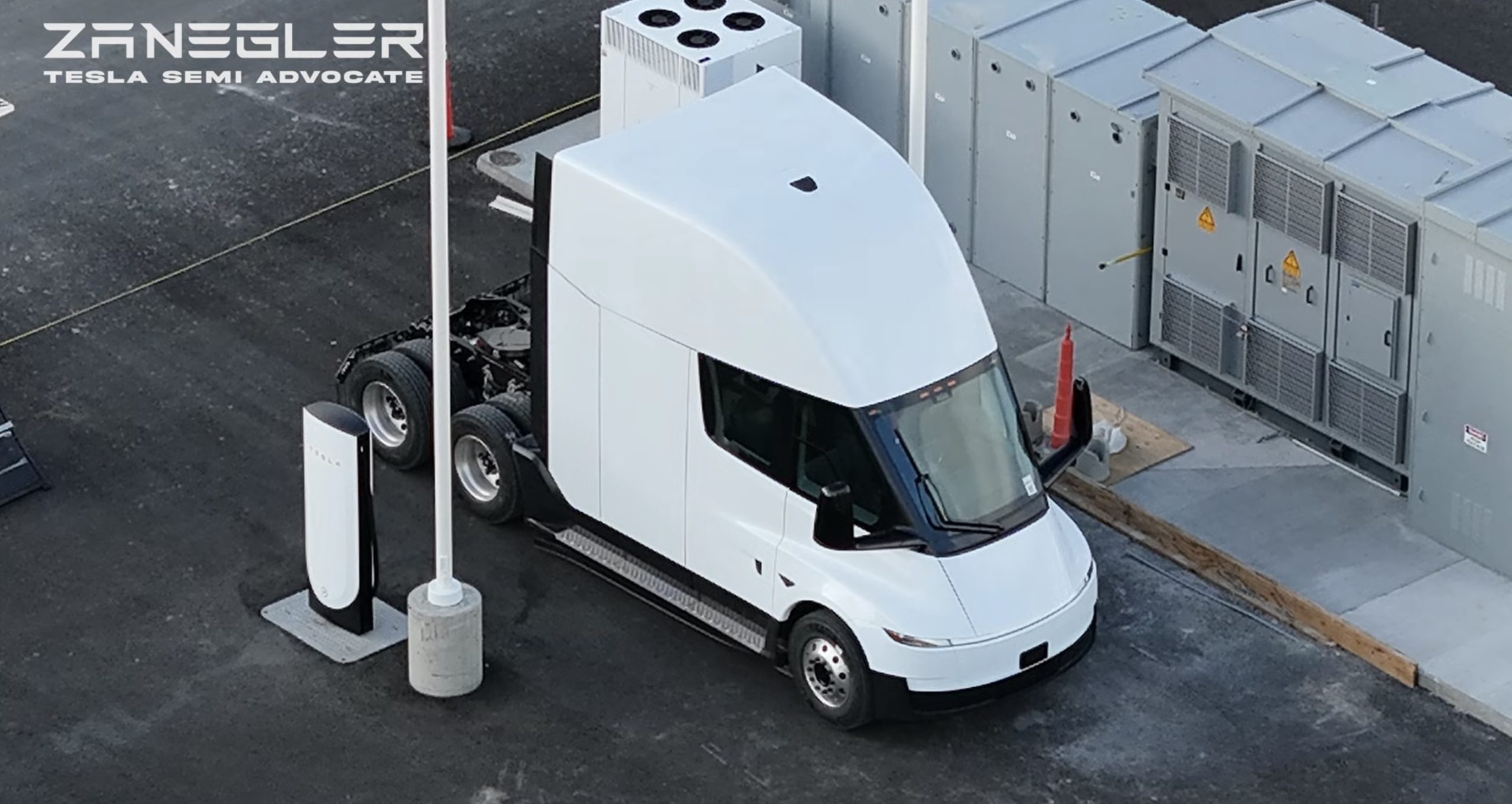
Tesla appears to be expanding its Commercial Charging efforts in Central Europe. The job opening was highlighted by David Forer, Senior Project Developer for Charging at Tesla, on LinkedIn.
In a post on LinkedIn, Forer stated that Tesla is looking for a “high-energy executer to own Commercial Charging Sales in Central Europe.” He added that the role will involve closing commercial deals across Tesla’s “entire product range (Supercharging & Megacharging).”
The job listing specifies that the hire will lead the sale of Tesla’s high-power charging products, including Supercharger and Heavy Duty Charging, to major partners such as charge point operators, real estate owners, and retail companies. The role requires fluency in German and English and is based onsite in Munich.
Tesla already operates more than 75,000 Superchargers globally, though the Semi’s Megacharger network is still in its early stages. The inclusion of Heavy Duty Charging in the job description is notable, then, as it aligns with Tesla’s Megacharger infrastructure, which is designed to support the Tesla Semi.
Tesla CEO Elon Musk recently confirmed that the Tesla Semi is moving into high-volume production this 2026. In a post on X, Musk noted that “Tesla Semi starts high volume production this year.”
Aerial footage of the Tesla Semi Factory near Giga Nevada also shows that the facility looks nearly complete, with work now underway inside the facility.
Tesla has also refreshed the Semi lineup on its official website, listing two variants: Standard and Long Range. The Standard trim offers up to 325 miles of range with an energy consumption rating of 1.7 kWh per mile, while the Long Range version provides up to 500 miles.
Both variants support fast charging and can recover up to 60% of range in 30 minutes using compatible infrastructure such as the Megacharger Network.
The presence of Heavy Duty Charging in a Central Europe-focused sales role could indicate that Tesla is preparing charging infrastructure ahead of wider Semi deployment in the region. While Tesla has not formally announced a European launch timeline for the Semi, the vehicle, particularly its range, makes it an ideal fit for the area.
Elon Musk
Tesla Full Self-Driving set to get an awesome new feature, Elon Musk says
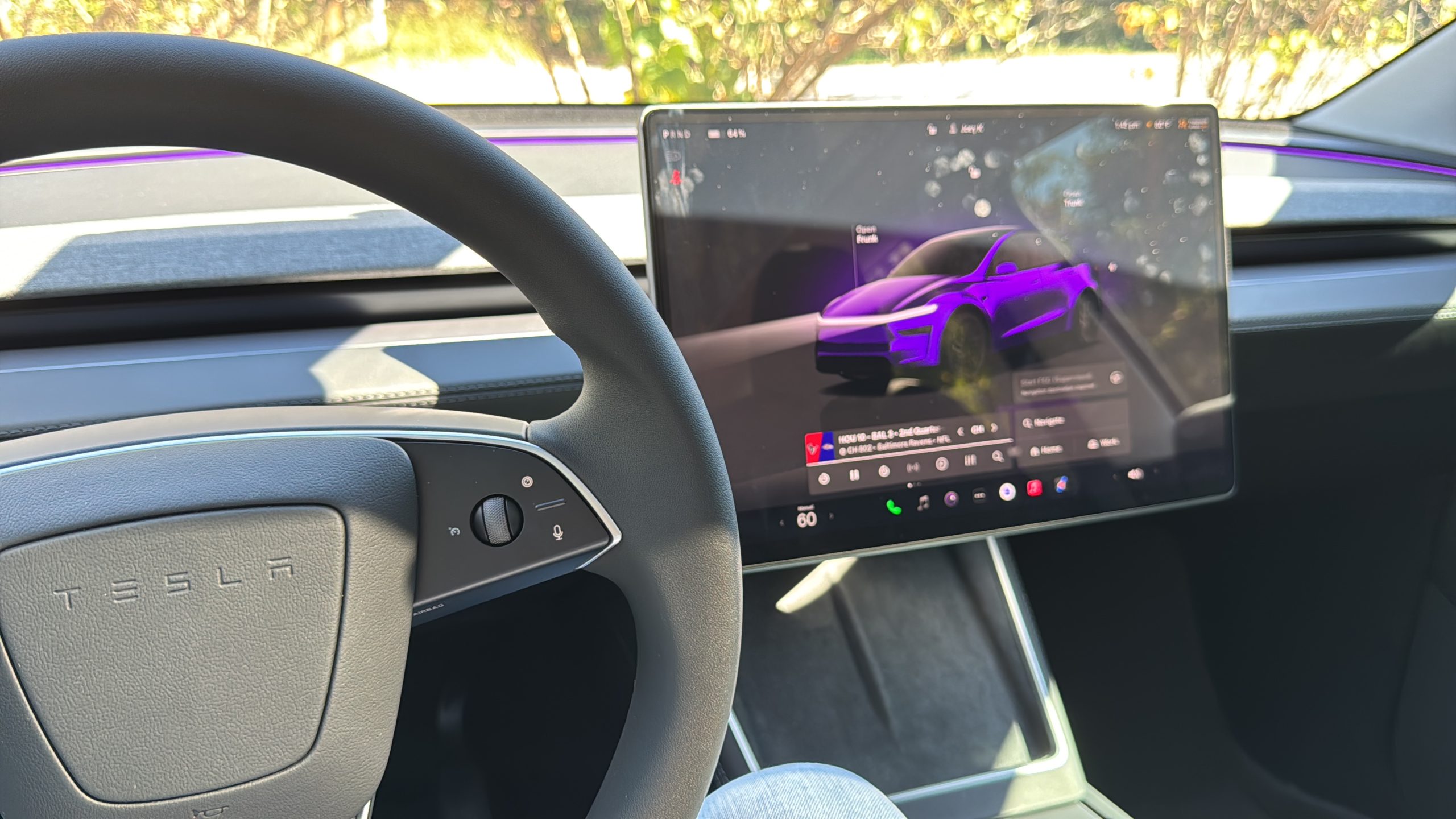
Tesla Full Self-Driving is set to get an awesome new feature in the near future, CEO Elon Musk confirmed on X.
Full Self-Driving is the company’s semi-autonomous driving program, which is among the best available to the general public. It still relies on the driver to ultimately remain in control and pay attention, but it truly does make traveling less stressful and easier.
However, Tesla still continuously refines the software through Over-the-Air updates, which are meant to resolve shortcomings in the performance of the FSD suite. Generally, Tesla does a great job of this, but some updates are definitely regressions, at least with some of the features.
Tesla Cybertruck owner credits FSD for saving life after freeway medical emergency
Tesla and Musk are always trying to improve the suite’s performance by fixing features that are presently available, but they also try to add new things that would be beneficial to owners. One of those things, which is coming soon, is giving the driver the ability to prompt FSD with voice demands.
For example, asking the car to park close to the front door of your destination, or further away in an empty portion of the parking lot, would be an extremely beneficial feature. Adjusting navigation is possible through Grok integration, but it is not always effective.
Musk confirmed that voice prompts for FSD would be possible:
Coming
— Elon Musk (@elonmusk) February 21, 2026
Tesla Full Self-Driving is a really great thing, but it definitely has its shortcomings. Navigation is among the biggest complaints that owners have, and it is easily my biggest frustration with using it. Some of the routes it chooses to take are truly mind-boggling.
Another thing it has had issues with is being situated in the correct lane at confusing intersections or even managing to properly navigate through local traffic signs. For example, in Pennsylvania, there are a lot of stop signs with “Except Right Turn” signs directly under.
This gives those turning right at a stop sign the opportunity to travel through it. FSD has had issues with this on several occasions.
Parking preferences would be highly beneficial and something that could be resolved with this voice prompt program. Grocery stores are full of carts not taken back by customers, and many people choose to park far away. Advising FSD of this preference would be a great advantage to owners.








